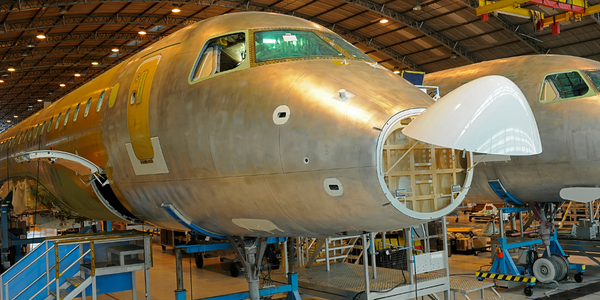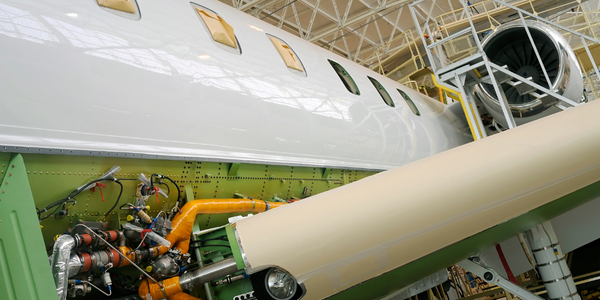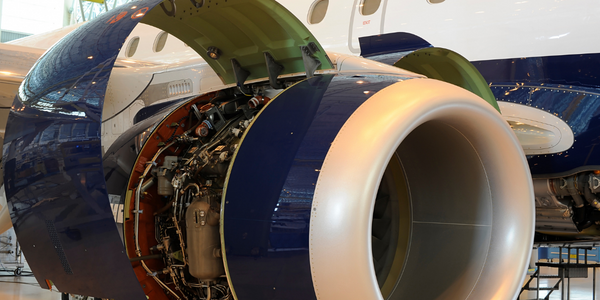Download PDF
Aerospace Manufacturer Enabled by Manufacturing Execution System to Produce Safety Critical Electronics

Technology Category
- Functional Applications - Manufacturing Execution Systems (MES)
Applicable Industries
- Aerospace
Applicable Functions
- Product Research & Development
Use Cases
- Process Control & Optimization
The Challenge
This document summarizes the manufacturing execution system (MES), or manufacturing operations management (MOM) solution implemented by an Aerospace parts manufacturer in order to introduce
full-accountability into their assembly processes. The MES/MOM delivered “integrity of process” by providing a control system which managed all aspects of the assembly process; and created a closed-loop of accountability, delivering the desired results every-single-time.
A critical aspect to the achievement of their goal was the management of a new assembly line workforce.
The true test of the dependability on the MES/MOM system was it empowered operators with little to no experience to build sophisticated electronic components to the highest quality standards. It is also noteworthy that the MES/MOM was able to be integrated and operational in a very short time frame in less than four (4) days.
About The Customer
Aerospace OEM Electronics Supplier to Boeing
The Solution
The quick integration and configuration of the plant floor management system was possible given the turn-key nature of the MES/MOM software, which is accessible from any web browser on any computer, tablet or Smartphone. The client was extremely relieved and impressed when they saw the system installed and operational within four (4) days, i.e. an inexperienced workforce was producing high-quality ‘safety critical’ parts within a week.
The solution was to scale-up the proven MES/MOM system in order to ensure plant-wide error-proofing in all processes on the assembly lines, be it by tool or device, or human. The manufacturing execution system contributed to an over-all paradigm shift by introducing a culture of ‘full-accountability’ into the customer’s manufacturing operations.
"…PINpoint taught us what accountability of process really means, the financial value of that and how to maximize the benefit of the assembly equipment we already owned."
~ Aerospace OEM Supplier
The Aerospace manufacturer was able to use the MES/MOM to configure the communications presented to assembly line workers in a way most meaningful to them, with easy to understand paperless work instructions including pictures, graphics, and videos demonstrating the tasks they are to perform. Line workers were guided step-by-step, with the MES/MOM verifying each and every step for conformity.
The solution was to scale-up the proven MES/MOM system in order to ensure plant-wide error-proofing in all processes on the assembly lines, be it by tool or device, or human. The manufacturing execution system contributed to an over-all paradigm shift by introducing a culture of ‘full-accountability’ into the customer’s manufacturing operations.
"…PINpoint taught us what accountability of process really means, the financial value of that and how to maximize the benefit of the assembly equipment we already owned."
~ Aerospace OEM Supplier
The Aerospace manufacturer was able to use the MES/MOM to configure the communications presented to assembly line workers in a way most meaningful to them, with easy to understand paperless work instructions including pictures, graphics, and videos demonstrating the tasks they are to perform. Line workers were guided step-by-step, with the MES/MOM verifying each and every step for conformity.
Operational Impact
Quantitative Benefit
Related Case Studies.

Case Study
Airbus Soars with Wearable Technology
Building an Airbus aircraft involves complex manufacturing processes consisting of thousands of moving parts. Speed and accuracy are critical to business and competitive advantage. Improvements in both would have high impact on Airbus’ bottom line. Airbus wanted to help operators reduce the complexity of assembling cabin seats and decrease the time required to complete this task.

Case Study
Aircraft Predictive Maintenance and Workflow Optimization
First, aircraft manufacturer have trouble monitoring the health of aircraft systems with health prognostics and deliver predictive maintenance insights. Second, aircraft manufacturer wants a solution that can provide an in-context advisory and align job assignments to match technician experience and expertise.

Case Study
Aerospace & Defense Case Study Airbus
For the development of its new wide-body aircraft, Airbus needed to ensure quality and consistency across all internal and external stakeholders. Airbus had many challenges including a very aggressive development schedule and the need to ramp up production quickly to satisfy their delivery commitments. The lack of communication extended design time and introduced errors that drove up costs.

Case Study
Developing Smart Tools for the Airbus Factory
Manufacturing and assembly of aircraft, which involves tens of thousands of steps that must be followed by the operators, and a single mistake in the process could cost hundreds of thousands of dollars to fix, makes the room for error very small.

Case Study
Accelerate Production for Spirit AeroSystems
The manufacture and assembly of massive fuselage assemblies and other large structures generates a river of data. In fact, the bill of materials for a single fuselage alone can be millions of rows of data. In-house production processes and testing, as well as other manufacturers and customers created data flows that overwhelmed previous processes and information systems. Spirit’s customer base had grown substantially since their 2005 divestiture from Boeing, resulting in a $41 billion backlog of orders to fill. To address this backlog, meet increased customer demands and minimize additional capital investment, the company needed a way to improve throughput in the existing operational footprint. Spirit had a requirement from customers to increase fuselage production by 30%. To accomplish this goal, Spirit needed real-time information on its value chain and workflow. However, the two terabytes of data being pulled from their SAP ECC was unmanageable and overloaded their business warehouse. It had become time-consuming and difficult to pull aggregate data, disaggregate it for the needed information and then reassemble to create a report. During the 6-8 hours it took to build a report, another work shift (they run three per day) would have already taken place, thus the report content was out-of-date before it was ever delivered. As a result, supervisors often had to rely on manual efforts to provide charts, reports and analysis.






